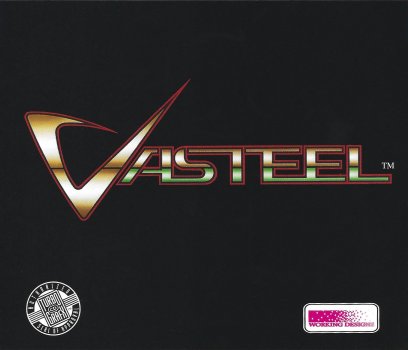

Took me just under 68 hrs to beat both brothers' campaigns. The 2nd playthrough took about 22 hrs thanks to having the battle system and map AI strategy figured out.
It's the game with possibly the most out-of-place music ever, as you get to wage war to some smooth jazz. That is, if you choose to listen to the music from the CD. You can choose to have the system's PCG play music, which is more frantic There is only a single map theme and battle theme if you choose the PCG music, while you get a decent variety of tunes by choosing CD music.
This is a game where it "slows down" as you learn it. I first thought fighting battles was pretty much impossible, but after a while, I got to where I was rarely getting hit if I was trying. It went from looking like it would be my most disliked strategy game to probably being somewhere in the middle.
The game is a turn-based strategy game on a hex grid with real-time battles. The battles are either between individual mechs, battleships, or between a mech and a battleship. There are also cities and factories that you have to take control of, by either defeating the defending mech or destroying the core if there isn't a mech defending, which give you more income to build more mechs. Each side can have up to 32 troops, so the maps are rather large. The campaign (which is actually called a scenario) consists of 16 scenarios, so when you get it down, each map will take about an hour or so. There's a cutscene between each map, so there's quite a bit of voice work in the game. Descriptions of all the mechs are also given with voice work, so there's next to no text in the game.
The game has a lot of good things going on. Plenty of different troop types without many palette swaps, maps that vary in terrain as well as having space battles with space specific mechs, some terrains having natural hazards to watch out for like falling rocks on the mountain terrain or asteroids flying around.
However, the battles being real-time causes the game to become rather tedious and boring, since once you figure it out, you can use the exact same strategy and win pretty much every battle with ease. I'm guessing you'd have to have a really robust learning AI for the CPU to remain a challenge, which I'm pretty sure wasn't possible when this game was made. The variety of mechs become almost pointless once you figure out the enemy's map AI.
According to what I found online, the audio compression Working Designs used was horrible, which causes most of the audio to have what sounds like static. Most of the time the static isn't too bad, but some of the mech descriptions are almost drowned out by it. There are also a few cutscenes in Stefan's campaign that seem to have the audio completely missing.
For what it is, it's a decent strategy game. I think it's just unavoidable to be dragged down by using the battle system it uses. To me, this is a good example of why you wouldn't want to have an RPG where the battles are done in a fighting game style, a la Street Fighter -- it might sound like something you'd like, but I think you'd just tire of having to go through all those fights.
This is the first game where Working Designs included outtakes, which became somewhat of a staple in their releases, albeit just one. It's also the first game I would consider as having higher quality packaging (I don't consider the CD slipcase Exile: Wicked Phenomenon came in, which I'm missing (I'm also missing the slipcase Vasteel came in), as being "premium"), as it comes with a nice map of the Vasteel planetary system -- the manual is still in b&w, so nothing special there.
